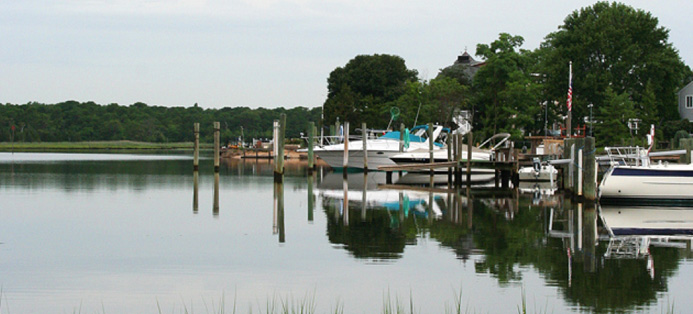Recreational Fishing and Boating

There are approximately 175,000 registered marine vessels in New Jersey and over 1.2 million anglers fish New Jersey’s marine waters each year.
Marine recreational activities are important uses of our coastal resources. According to the New Jersey Department of Transportation there are approximately 175,000 registered vessels in New Jersey. The National Marine Manufacturers Association reports that New Jersey is currently ranked 28th in the nation based on the number of vessels registered in the state. New Jersey’s fishery resources contribute more than $2 billion annually to the state’s economy. New Jersey recreational fisheries are among the nation’s leaders in terms of angler expenditures, revenue generated, and angler participation. Furthermore, the National Marine Fisheries Service (NMFS) marine recreational fishery statistics indicate that over 1.2 million anglers fish New Jersey’s marine waters each year and the Marine Trades Association of New Jersey has estimated that about 67% of the boats registered in New Jersey are used for fishing.
In order to sustain New Jersey’s fisheries resources growth must be balanced with ecosystem protection and enhancement. This balance can only be achieved through the understanding of the functions of an ecosystem and the use of scientific information in the management process. In response to these needs, the Extension Program strives to transfer the scientific results generated by fishery and ecosystems researchers to the coastal user community in an effective and easily understood manner and focuses on reducing impacts associated with recreational boating, reducing the mortality associated with catch and release and increasing compliance with federal and state regulations.
New Jersey Clean Marina Program
The New Jersey Clean Marina Program (NJCMP) is a voluntary, incentive-based initiative that encourages marinas to adopt environment-friendly business practices to reduce pollution in local waterbodies.
New Jersey Clean Vessel Act Program
Since 1995, the New Jersey Clean Vessel Act Program has provided marina owners in New Jersey with an opportunity to apply for funds to install vessel pump-outs at their facilities to collect and dispose of vessel-generated sewage.
Shrink Wrap Plus Recycling Program
Plastic shrink wrap is a popular and cost effective material used by marinas and boat owners to protect boats and other marine vessels from harsh winter weather conditions, sunshine and other harmful elements. It is, however, considered a serious waste disposal problem, as there are limited recycling options for the hundreds of tons of shrink wrap that are discarded each spring.
If you have any questions or need more information, please contact Mike Danko at 732.610.0015 or mdanko@njseagrant.org.
Marina Industry Enhancement Program
Marinas face many challenges: rising operating costs, decreasing fish populations, a decline in participation in boating and fishing and a weak economy. To help address these issues, the New Jersey Department of Transportation’s I BOAT NJ. Program recently awarded over $600,000 to the New Jersey Sea Grant Consortium (NJSGC) to conduct activities to enhance the marina industry and expand the New Jersey Clean Marina Program.
Vessel Wastewater Management
The New Jersey Department of Environmental Protection recently required holders of the Basic Industrial Stormwater General Permit to eliminate the discharge of boat bottom washing wastewater by June of 2009. Marinas need to capture the water and reuse it or dispose of it properly.
Catch & Release
The popular Catch & Release: A Guide to Ethical Angling information packet produced by the New Jersey Sea Grant Consortium Extension Program is now available. The packet includes a tri-fold brochure that explains the philosophy of catch and release fishing and provides simple, step-by-step instructions for the procedure.
Aquatic Invasive Species
Aquatic invasive species (AIS) are species that have established viable populations in aquatic ecosystems to which they are not native. Brought to their new home by human activities, both intentionally and unintentionally, by definition invasive species are harmful to their new environments and have the potential to disrupt entire ecosystems.